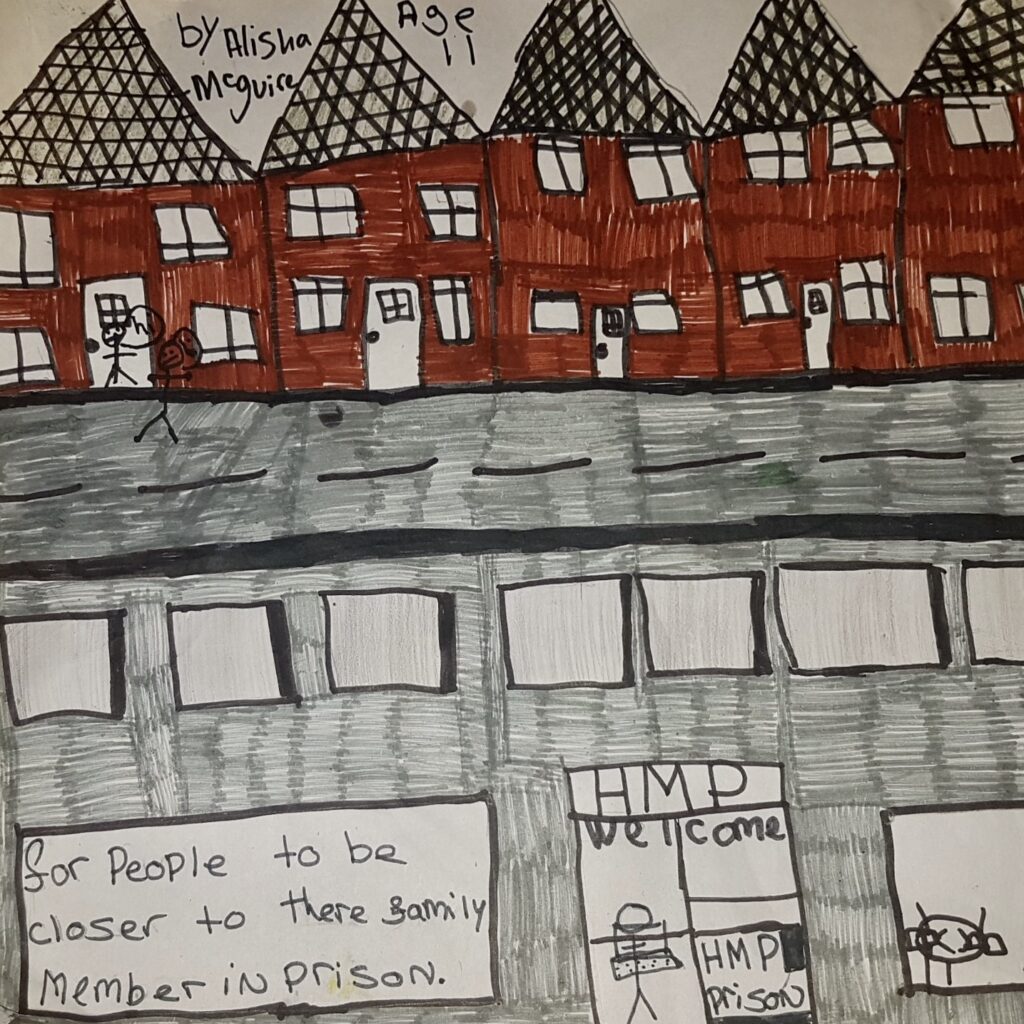
Alisha, aged 11
On 8 December 2022, the European Commission adopted a Recommendation concerning the procedural rights of suspects and accused persons subject to pre-trial detention and on material detention conditions. The Recommendation expands on a number of standards established in existing legally and non-legally binding instruments on the national, Union and international level including Council of Europe Recommendation CM/Rec(2018)5 of the Committee of Ministers to member States concerning children with imprisoned parents.
COPE welcomes the European Commission Recommendation notably for obliging Member States to promote the allocation of prisoners in detention facilities close to home, to ensure that spaces for family visits in detention facilities are child-friendly and encourage the maintenance of regular and meaningful contact between family members, and to consider the specific physical, vocational, social and psychological requirements of women and girls, including pregnant women, and the needs of their infants.
COPE celebrates the European Commission Recommendation for calling attention to CM/Rec(2018)5, equally promoted in the EU Strategy of the Rights of the Child – adopted in March 2021 – marking a decisive move towards greater child awareness in prison services throughout EU Member States. Through the European Commission Recommendation, Member States are encouraged to better support children with a parent suspected or accused in criminal proceedings who are deprived of liberty in relation to the following areas:
Allocation – Member States are encouraged to allocate detainees, as far as possible, to detention facilities close to their homes or other places suitable for the purpose of their social rehabilitation (Article 37).
Contact with the outside world – Member States should allow detainees to receive visits from their families and… should also allow detainees to correspond freely with such persons by letter and, as often as possible, by telephone or other forms of communication including alternative means of communication for persons with disabilities (Article 54). The facilities that accommodate family visits are should be child-friendly and visits must ensure the maintenance of regular and meaningful contact between family members (Article 55). Member States should consider enabling communication via digital means, such as video calls, in order to, inter alia, enable detainees to maintain contact with their families (Article 56).
Special measures for women and girls – The European Commission Recommendation also recognises the specific physical, vocational, social and psychological needs of women and girls, as well as sanitary and healthcare requirements. Under this Recommendation, detainees should be allowed to give birth in a hospital outside of detention facilities; where infants are indeed born in detention facilities Member States should arrange all necessary support and facilities to protect the bond between mother and child and to safeguard their physical and mental well-being, including appropriate pre-natal and post-natal health care (Article 65). When infants reside with detainees – as in line with the best interests of children – Member States are called upon to provide special accommodation and take all reasonable child-friendly measures to ensure the health and welfare of affected children throughout the execution of the sentence (Article 66).
The European Commission Recommendation is available in full here.

